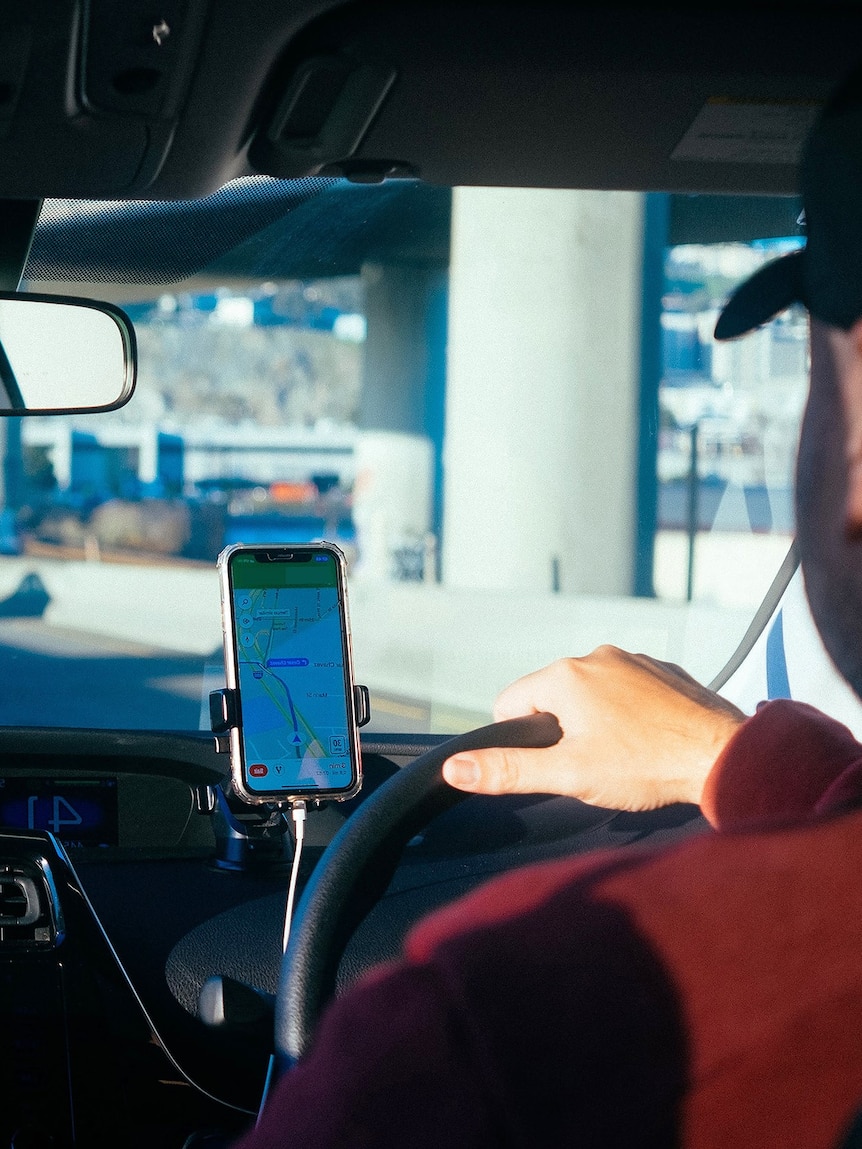Adelaide taxi owners whose licences plummeted in value because of the crushing impact of Uber on the sector could be offered $200,000 by the SA government under a new licence buyback scheme.
The reform is one of several major changes proposed by a seven-year statewide review, which has also recommended removing barriers to rideshare and taxi operations in regional areas, boosting safety, enhancing consumer protections, and improving reliability of services for passengers with disabilities.
But the changes come at a cost, with passengers set to be slugged an extra $1 per trip.
The review was unveiled today, with the SA government proposing to overhaul licence arrangements by removing the cap on the number of taxis permitted to operate in Adelaide.
The value of taxi licences plunged — from as high as $375,000 in the 1990s to $10,000 in recent years — as demand for taxis was slashed by more than half, following the controversial introduction of Uber into the Adelaide market in the mid-2010s.
SA Taxi Council president John Trainer said Uber had had an “absolutely devastating effect” on taxi drivers, who invested in licences but lost what was “supposed to be their superannuation”.
“In most cases they had to borrow that money, mortgage their home — many of them have lost their homes as a result of the sudden devaluation of those licences after the introduction of Uber,” he said.
“We’ve had people still working into their 70s and 80s.”
Mr Trainer said while he did not support “absolutely everything” in the review, he was “very, very grateful” that drivers would be entitled to some form of compensation.
Under the buyback proposal, local operators who bought metropolitan taxi licences before the arrival of Uber could be offered $200,000 for a first licence and $10,000 for subsequent ones, up to a total of six vehicles.
The value of taxi licences plunged following the arrival of Uber. (ABC News: Michael Clements)
Licence holders for access taxis — which cater for passengers with disabilities, including those who use wheelchairs and scooters — would receive $100,000 for the first licence, and $10,000 for each subsequent one.
In 2019, Uber and other ride-sharing services stopped accepting fares in the Barossa Valley and the Adelaide Hills, which were deemed to be outside of the service’s “active” area.
But Transport Minister Tom Koutsantonis said that outcome would be reversed, and that ridesharing services would be allowed to operate “statewide”.
“We’re lifting the metropolitan boundary for Uber to make sure that regional areas can have the benefit of rideshare,” he said.
“In the Barossa Valley or the Adelaide Hills or the Clare Valley or wherever Uber want to compete, they can go and operate.”
In a statement, Uber said it was “delighted” by the change, saying it would benefit drivers and grant regional passengers “the same opportunities to choose rideshare as people in Adelaide”.
Elderly passenger almost missed husband’s funeral
The government has not yet committed to a new delivery model for access taxis, but said there was a need for “fundamental change” in the way they operate, because of the high level of “unmet need”.
It said nearly 7,000 passengers in the first six months of this year had been left waiting for more than half an hour for an access cab to arrive.
“There are access cab drivers earning over $200,000 a year, yet we have an unmet need where we have people sitting at Adelaide Oval, or at hospitals or at waiting rooms or at restaurants, who simply can’t get home because they’ve got a disability and need an access cab,” Mr Koutsantonis said.
The government said access cabs need to become more reliable. (ABC News: Michael Clements)
Mr Trainer said one example he was aware of was an elderly friend of his who “nearly missed her husband’s funeral because the access cab wouldn’t turn up, and she had to be jammed into a private vehicle”.
The government acknowledged that alleged fraud was “prevalent across the access industry”, and said 66 taxis had been linked to such behaviour in the past two years.
“There have been 51 counts of drivers inappropriately claiming on lifting fees, with a total of 91 double-ups being recorded throughout this period,” Mr Koutsantonis said.
The industry review also recommended boosted consumer protections including “strong penalties” for any taxi and rideshare drivers caught scamming passengers, and cameras in “all point-to-point vehicles” to improve safety for drivers and passengers.
The government said the reforms would be funded by an increase to the point-to-point passenger transport levy, which was introduced in 2017.
The fee is expected to double from $1 to $2.
Opposition spokesperson for transport Ben Hood said that increase amounted to a new tax.
“A previous Labor government threw the taxi industry under the bus when rideshare came into this state and now Minister Koutsantonis is passing the buck onto everyday South Australians to pay for his reform package,” he said.
“They’re providing some support now, but they cannot do it as another new tax — it is simply not good enough in a cost-of-living crisis.”
But Mr Koutsantonis said the reforms would have an overall downward effect on fare prices.
He said that removing caps on the number of taxis would help combat surge pricing in the rideshare sector.
“What we’re seeing with ridesharing is a lot of surge pricing occur, where people coming in from Adelaide Airport to the city are seeing prices of up to $70 to get from the airport to the city, but it should be a $22 fare,” he said.
“Taxis can’t compete because there aren’t enough taxis on the road.
“This is an opportunity for us to have real competition.”




